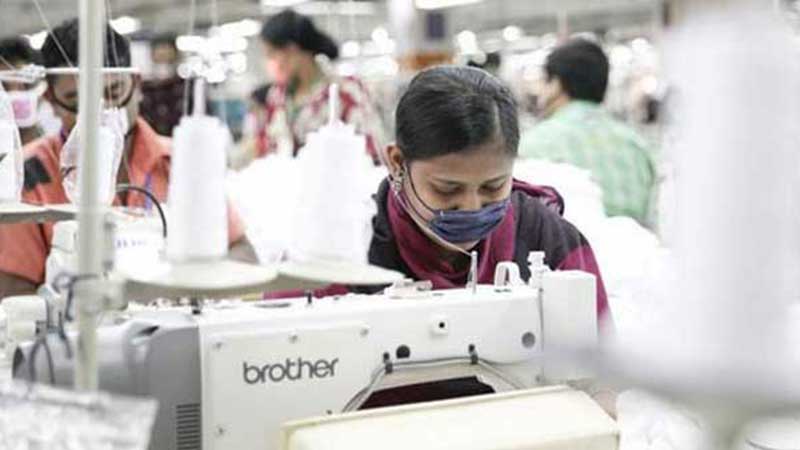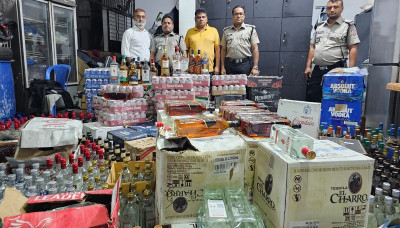 Photo: Bonik Barta (File Photo)
Photo: Bonik Barta (File Photo) After
the government’s fall due to anti-discrimination student movement, instability emerged
in the ready-made garment (RMG) sector in Bangladesh. Concerns regarding
international buyers shifting their orders to other countries also surfaced
during the mass movement as the industry faced many obstacles. However, despite
the instability, international buyers did not transfer their orders. During
that time, no brands or companies imposed penalties on factory owners. These
insights were highlighted in a report published this September by the US-based
Business & Human Rights Resource Centre (BHRRC). The report was based on
conversations with 20 international buyers and companies. Out of these, 12
companies confirmed they had no plans to relocate their orders, while one
company (GAP) did not provide any information on relocation. The remaining seven
brands or companies did not respond to the research organization’s inquiries.
The
report quoted garment manufacturers who stated that the sector incurred losses
of approximately BDT 65 billion during the protests. The reasons cited were
delayed product deliveries, increased transportation costs and risks, supply
chain disruptions, and prolonged warehouse storage times. As the delivery
period extended, factory owners faced the risk of order cancellations. To mitigate
this risk, workers worked overtime, and factory owners arranged extra security
for workers’ transportation, covered additional transport expenses, and paid
for overtime labor, which proved to be challenging for the owners.
The
report further mentioned that the US-based research organization posed five
questions to 15 top international buyers and five strategic companies. They
also reached out to 20 brands, of which 11 brands and two companies responded.
These brands included Adidas, Asda, C&A, H&M, Inditex, Marks &
Spencer, Next, Puma, PVH Corporation, Tesco, Primark, and two companies—Walmart
and Gap. However, seven brands or companies did not respond to the
organization. Among the respondents, 12 companies answered all questions and
assured BHRRC that they did not relocate their orders from Bangladesh during
the period of instability. Additionally, no brands or companies imposed fines
on the factory owners during that time. One company responded to all queries
but did not disclose information about relocation.
Fazlee
Shamim Ehsan, Vice President of the Bangladesh Knitwear Manufacturers and
Exporters Association (BKMEA), informed BHRRC that several brands demanded discounts
on prices due to delayed deliveries. The factory owners obliged and settled for
discounts amounting to approximately BDT 10 billion. Additionally, to meet
delivery schedules, producers had to bear higher transport costs and expensive
air freight charges for urgent shipments. Factory owners continued discussions
with buyers to avoid penalties for delayed deliveries.
Meanwhile,
to recover losses caused by the instability surrounding the quota reform movement
and mass uprising, the Bangladesh Garment Manufacturers and Exporters
Association (BGMEA) has sought a one-year ‘soft loan’ from the government. The
interim government has assured assistance.
The
quota reform movement began in early July under the call of anti-discrimination
student movement. The movement intensified after the killing of a student by
police and ruling party members, leading to a one-point demand for the government’s
resignation. This movement culminated in the resignation and exile of then
Prime Minister Sheikh Hasina on August 5, marking the fall of the government.
Following
the government’s fall, the garment sector experienced instability due to the
departure of top government officials, many of whom were garment factory
owners. As a result, situation at their factories became unstable. Meanwhile,
workers began protesting for various demands, further escalating the unrest in
the sector. Road transportation across the country was disrupted from July 15
to August 5, the day of the government collapse. After the fall, when the
police withdrew from their duties, the country’s security system broke down.
Normalcy was gradually restored nationwide with the intervention of the
military.





